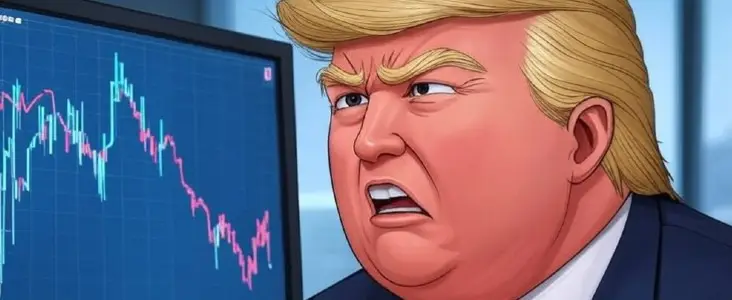In recent developments, House Democrats have proposed legislation to ban public officials from issuing or endorsing memecoins. This move comes in response to the emergence of presidential memecoins, which have raised concerns about ethics, market stability, and national security.
Table of Contents
- Introduction
- Key Takeaways
- Understanding Memecoins
- The Emergence of Presidential Memecoins
- The MEME Act: An Overview
- Ethical and Legal Implications
- Market Impact of Presidential Memecoins
- Regulatory Perspectives
- Public and Political Reactions
- The Future of Memecoins in Politics
- FAQs
- Conclusion
Key Takeaways
- House Democrats have introduced the Modern Emoluments and Malfeasance Enforcement (MEME) Act to ban public officials from issuing or endorsing memecoins.
- The bill aims to address concerns about transparency, insider trading, and foreign influence associated with presidential memecoins.
- Market volatility and ethical questions have arisen due to the launch of memecoins by political figures.
- The future of memecoins in politics remains uncertain, with potential regulatory actions on the horizon.
Understanding Memecoins

Memecoins are a type of cryptocurrency inspired by internet memes or cultural references, often emerging as playful or satirical takes on the crypto world. Unlike traditional cryptocurrencies like Bitcoin or Ethereum, which are built on robust technological frameworks and aim to serve practical purposes, memecoins typically lack intrinsic value and are driven primarily by community sentiment and speculative trading.
Their popularity can surge rapidly, fueled by social media hype and endorsements from influential figures, leading to significant price volatility that can see values skyrocket or plummet in a matter of hours. This rollercoaster dynamic attracts thrill-seeking investors but also makes them a risky bet, as their worth is tied more to trending jokes or viral moments than to any underlying fundamentals. For instance, a memecoin tied to a figure like Donald Trump could ride a wave of political fervor, amplifying its chaotic appeal in the unpredictable crypto market.
The Emergence of Presidential Memecoins
The political landscape witnessed an unprecedented fusion with the crypto world when President Donald Trump launched the Official Trump ($TRUMP) memecoin. This initiative was soon followed by First Lady Melania Trump introducing her own memecoin ($MELANIA). These presidential memecoins quickly gained traction, attracting both supporters and critics.
Advertisement
Join Gemini today and get $15 in free Bitcoin when you trade with an easy, secure and U.S.-regulated crypto exchange you can trust. Offer valid for U.S. residents only; crypto investments are risky.
The MEME Act: An Overview
Purpose and Provisions
The Modern Emoluments and Malfeasance Enforcement (MEME) Act seeks to prohibit public officials, including the President, Vice President, members of Congress, senior executive branch officials, and their immediate families, from issuing, sponsoring, or endorsing any digital assets, including memecoins. The bill aims to prevent potential conflicts of interest and ensure that public office is not used for personal financial gain.
Legislative Support
Introduced by California Representative Sam Liccardo, the MEME Act has garnered support from a dozen Democratic co-sponsors. Efforts are underway to build bipartisan backing for the legislation, emphasizing the need for integrity and transparency in public office.
Ethical and Legal Implications
Memecoin Conflict of Interest
The issuance of memecoins by sitting public officials raises significant ethical concerns. Critics argue that leveraging political positions for personal financial benefit undermines public trust and blurs the line between public service and personal gain.
Insider Trading and Market Manipulation
The potential for insider information to influence the value of memecoins associated with public figures poses risks of market manipulation. Such activities could erode investor confidence and destabilize the broader cryptocurrency market.
Foreign Influence on Memecoins
There are apprehensions that foreign entities might acquire these memecoins to gain favor or exert influence over U.S. officials, posing potential national security risks.
Market Impact of Presidential Memecoins
Initial Surge and Subsequent Decline
Upon their launch, presidential memecoins experienced a meteoric rise in value. For instance, the $TRUMP memecoin peaked at $72 on January 19th but later declined to around $37 and currently sitting at $13 on February 27th, reflecting the inherent volatility of memecoins.
Investor Sentiment
The fluctuating value of these memecoins has led to mixed reactions among investors. While some view them as novel opportunities, others express caution due to the speculative nature and potential ethical issues surrounding their issuance.
Regulatory Perspectives
SEC’s Stance
Hester Peirce, a commissioner of the U.S. Securities and Exchange Commission (SEC), noted that most memecoins do not fall under the SEC’s jurisdiction. This regulatory gray area complicates oversight and enforcement actions related to such digital assets.
Calls for Memecoin Investigation
Prominent lawmakers, including Senator Elizabeth Warren and Representative Jake Auchincloss, have urged federal regulators to investigate the legal and ethical implications of presidential memecoins. Their concerns center on potential conflicts of interest and the propriety of public officials profiting from such ventures.
Public and Political Reactions
Support and Criticism
The introduction of the MEME Act has elicited a spectrum of responses. Supporters advocate for the legislation as a necessary measure to uphold ethical standards in public office. Conversely, critics argue that it may infringe upon personal freedoms and question its enforceability.
Media Coverage
Media outlets have extensively covered the controversy surrounding presidential memecoins, highlighting the intersection of politics, finance, and digital innovation. This coverage has amplified public discourse on the responsibilities and limitations of public officials in the rapidly evolving crypto landscape.
The Future of Memecoins in Politics
The intertwining of memecoins and politics presents uncharted territory. As regulatory bodies deliberate on appropriate frameworks, the role of digital assets in political spheres remains a contentious issue. The outcome of the MEME Act and related discussions will likely shape the future interactions between cryptocurrency and political figures.
Conclusion
The proposal of the MEME Act signifies a critical juncture in addressing the ethical and legal challenges posed by presidential memecoins. Balancing innovation in the crypto space with the imperative for transparency and integrity in public office is paramount. As this situation unfolds, it underscores the necessity for clear guidelines and robust oversight to navigate the complexities at the intersection of digital finance and political ethics.
FAQs
1. What are memecoins?
Memecoins are cryptocurrencies inspired by internet memes or cultural phenomena, often characterized by their volatility and speculative nature.
2. Why are House Democrats proposing the MEME Act?
The MEME Act aims to prevent public officials from issuing or endorsing digital assets like memecoins to avoid conflicts of interest and ensure ethical conduct in public office.
3. Who introduced the MEME Act?
California Representative Sam Liccardo introduced the MEME Act, with support from a group of Democratic co-sponsors.
4. What concerns do presidential memecoins raise?
Presidential memecoins raise concerns about potential conflicts of interest, insider trading, market manipulation, and foreign influence over U.S. officials.
5. How have presidential memecoins affected the market?
Presidential memecoins experienced initial surges in value followed by significant declines, reflecting their volatile nature and impacting investor sentiment.
6. What is the SEC’s position on memecoins?
SEC Commissioner Hester Peirce stated that most memecoins do not fall under the SEC’s jurisdiction, highlighting a regulatory gray area.



